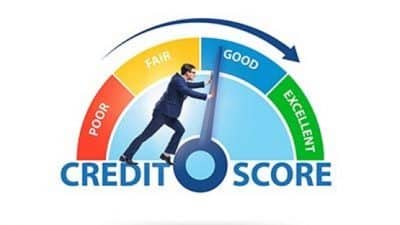
The average American’s credit score is 695 using the VantageScore model.
Personal finance website WalletHub released its report on 2022’s States with the Highest & Lowest Credit Scores.
WalletHub analyzed the average credit scores of residents in all 50 states, and determined that Minnesota has the highest credit score at 724.
New Hampshire with 719, Vermont with 718, Massachusetts with 716 and South Dakota with 715 followed.
The worst credit scores are 662 in Mississippi, 668 in Louisiana, 672 in Alabama, 673 in Arkansas and 673 in Oklahoma. Texas has an average credit score of 674 and West Virginia has the eighth worst credit score with 676.
Experts offered commentary on the best ways to build credit.
“Be patient. Building good credit takes time. You must be consistent with your bill payments,” Dr. Philip Gibson, associate professor at Winthrop University, said in a press release. “Take the necessary steps to avoid derogatory marks on your credit report. For example, if you are not able to make a payment on time, reach out to the lender, and ask for an extension. If you visit the doctor’s office, be sure to open all mail that comes from that office to make sure you do not miss a bill. Monitor your credit report to make sure everything looks accurate. Understand how credit utilization, a general rule of thumb is to keep your utilization below 30 percent, but the closer you are to zero, the better it is.”
Bradley Allen Stevenson is an associate professor at Bellarmine University and he said to make sure to pay bills on time, and to pay off credit cards every month even if you cannot afford to so that your balances are low.
“Keep your other outstanding debt lower as well and pay it off. More outstanding debt makes you look riskier to potential lenders. Also, for credit cards, especially for younger people, become an authorized user on someone else’s account like a parent (who has good credit practices),” Stevenson said in the press release.
What are the most common misconceptions about credit scores?
“Although the law changed years ago, some people still mistakenly believe that if they request a copy of their credit report it will hurt their credit score,” Lauren E. Willis, a professor and Associate Dean for Research at Loyola Marymount University, said in the press release. “Obtaining your own report to inform yourself about what is on there and to dispute inaccuracies will not affect your score. Another misconception is that you can do nothing in the face of inaccuracies in your report. Consumers have the right to dispute inaccuracies, and the process is not complicated (although it can take some time to resolve the issue). The rate of errors on credit reports is known to be significant. This could be due to identity theft, but it also happens simply because people misspell names when they type in information sent to credit reporting agencies and because computers can confuse two people with the same name. Unfortunately, the law does not give credit reporting agencies and creditors who provide erroneous information sufficient incentive to double-check and avoid such errors on their own, and so the consumer must raise a dispute.”
Stevenson said a misconception exists that wealthy people automatically have higher credit scores.
“Income does not affect your credit score and it does not follow that wealthier individuals have better credit scores. What does really matter is paying your bills on time and how much debt you have,” he said.
Dr. Kelsey Syvrud, Ph.D. is Assistant Lecturer and Assistant Director of the BB&T Center for Free Enterprise at Florida State University, and advises that closing a credit card account does not impact your credit score in a positive way.
“Recall, credit utilization is a major factor in credit score calculation. Closing a credit card account will reduce your total credit limit. Assuming nothing else about your credit history changes, the closing of the account will increase your credit utilization score, which may hurt your credit score. Changing your credit score cannot happen overnight. Typically, it may take 30 to 60 days to see a big change from any actions you took to boost your credit. This means you cannot wait until the week before you want to obtain a mortgage or an auto loan to try and improve your credit…Do not try and open too many new credit or loan accounts at once. Typically, your credit score will be hurt any time a potential lender pulls your credit report…Opening several accounts at once may hurt your score each time a different account lender pulls your credit…Opening multiple new accounts in a short time will reduce your average credit history which can also hurt your credit score,” Syvrud said.
Dr. Curtis M. Nicholls, associate professor and co-director of Bucknell’s Student Managed Investment Fund at Bucknell University, said that opening too many credit cards or assuming your score will change overnight are common mistakes.
“Also assuming that simply downloading an app is going to change it. Ultimately, improving your credit score is driven by changing behavior. Apps or access to your score through a credit card help drive behavior because they put your score in front of you, but no change will occur without better spending patterns and careful management of outstanding debt,” Nicholls said.










